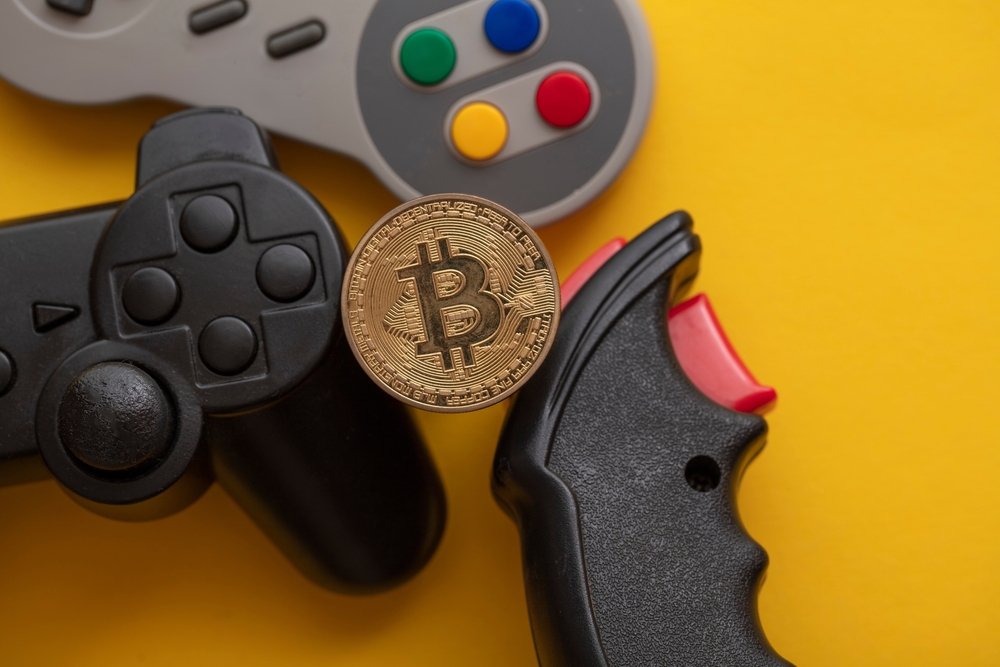Despite almost 50 blockchain games calling it quits this year, others are shifting. Game7’s most recent report reveals the most popular chains.
As a developed industry, blockchain gaming has already encountered significant problems, which has caused several developers to pause their respective games while some have switched chains. A new Game7 report on the Web3 gaming industry’s state revealed that last year, 157 blockchain games were ‘paused’ or otherwise ceased development, while 43 were paused this year.
George Isichos, Game 7’s main contributor, told a media outlet that the ‘Web’ or blockchain games that ceased development in 2023 experienced challenges in acquiring financial backing. Besides, they were primarily titles developed prior to 2021.
Monetary Challenges Tripping Games
A majority of blockchain games that ceased development or live support in 2023 were also primarily from small studios. On the other hand, quite a few ‘AA’ or ‘AAA’ games were shut down. According to Game 7, ‘AA’ is a studio comprising funding worth an estimated $10-25M. ‘AAA’ studios entail those whose funding is more than $25M.
The report shows that in spite of this, most Web3 games are still independent games, where 42% of Web3 games are categorized as ‘autonomous’ or created by people or small teams without publishers or monetary supporters.
Further, 40% of Web3 games are ‘midsize,’ an indicator that they secured funding amounting to $10M or less. AA games comprise only 5% of the blockchain gaming system, while AAA comprises only 1% of the ecosystem.
Additional Chains, Additional Competition
This year, overall gaming-focused blockchain platforms have risen from 37 in 2022 to 53. As such, rivalry among blockchains contesting for game developers to utilize their networks has spiked and is linked to an increase in developers changing chains this year.
A majority of blockchain games still utilize a layer-1 blockchain, such as Ethereum’s mainnet, while others have embraced Ethereum-appropriate scaling networks or sidechains. Gamey7 claims that nearly 81% of the present blockchain games utilize a non-gaming-specific layer-1 blockchain.
Currently, the Ethereum Virtual Machine (EVM) is the most famous option for blockchain games. In this case, 74% of games utilize an EVM platform. Solana’s virtual machine makes up nearly 10% of games.
People question which networks most blockchain games are utilizing this year. Polygon is the first choice, BNB Chain by Binance is the second, and Ethereum’s mainnet is the third choice. The networks occupying the fourth to seventh spots entail Solana, Immutable, Avalanche, and Arbitrum.
Games Shifting Chains
The report indicates that in 2023, games moved to Polygon, Immutable, and Arbitrum in the biggest numbers. Further, 60% of games that moved from a layer-1 platform shifted to a layer-2 scaling platform.
Since switching blockchains is difficult, one questions the reasons behind the games’ migration. Reinhardt Weyers, an Indie developer, is Untitled Platformer’s developer. The game was unveiled on BNB Chain (previously Binance Smart Chain or BSC) in 2021. Through email, he told a media outlet that this year, he found it wise to shift to a gasless chain, meaning one lacking transaction fees, and move his game to SKALE.
He noticed that since Untitled Platformer’s switch, ‘players became more actively involved in trying the game to the point of sticking around for some time.’
Earlier this year, Pirates Nation and Mighty Action Heroes shifted from Polygon to Arbitrum. Chief executive officer Amitt Mahajan, Pirate Nation creator at Proof of Play, previously divulged to a media outlet that as more persons have shifted to Polygon, they have just begun experiencing scaling challenges with the Polygon chain.
In addition, he said that their daily gas payment ranged from $3000 to $4000. As such, it became unsustainable and prevented them from scaling the game.
Some developers moved chains due to reduced costs, while others switched because of a wider market as well as regulatory issues. In an email, Jayvee Fernandez, Anito Legends’s chief marketing officer and cofounder, claimed that concerns surrounding Binance resulted in the Philippines-founded studio opting to shift its initial blockchain game from BSC to Polygon. She told a media outlet that general sentiment regarding BSC is presently unfavorable.
Jayvee claimed that following its unveiling last year, the SBF and CZ debacle resulted in market anxieties and ambiguity. Besides, they witnessed Binance being under attack in other markets. She also claimed that they felt the market was extremely ‘centralized’ and did not want the game’s future to experience this kind of drama.
Jayvee also mentioned that Polygon was finally picked since the team is confident that it is more decentralized. It was also a chance to link with a majority of the other Philippines-founded games utilizing the Ethereum sidechain.
Others, such as Corey Wilto, Mirai Labs’s chief executive officer, have fully developed their blockchains. Corey’s studio developed the Pegaxy blockchain game. He said through email that it amounted to value capture for them. Developing a chain came at a fairly reduced cost ($100k to $200k).
